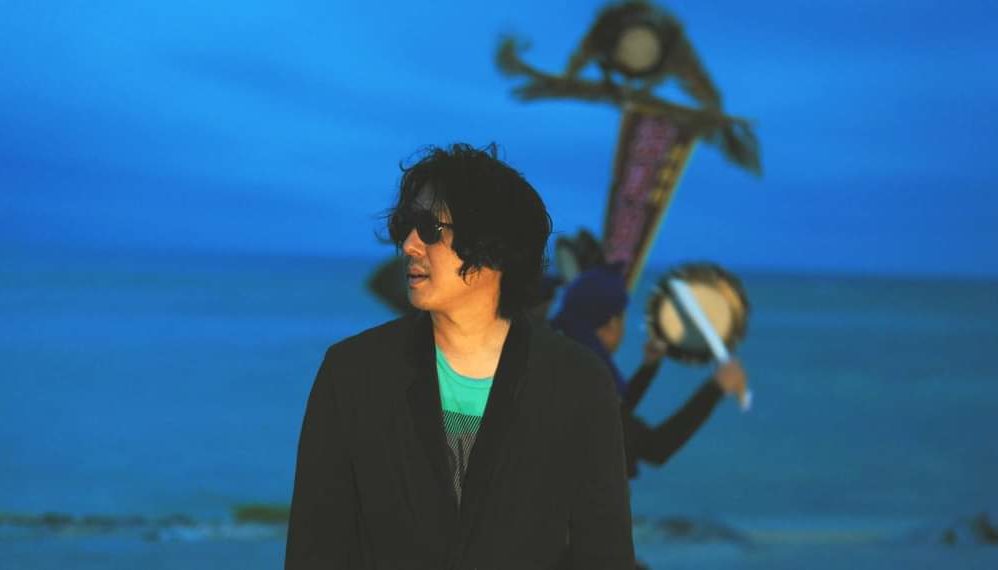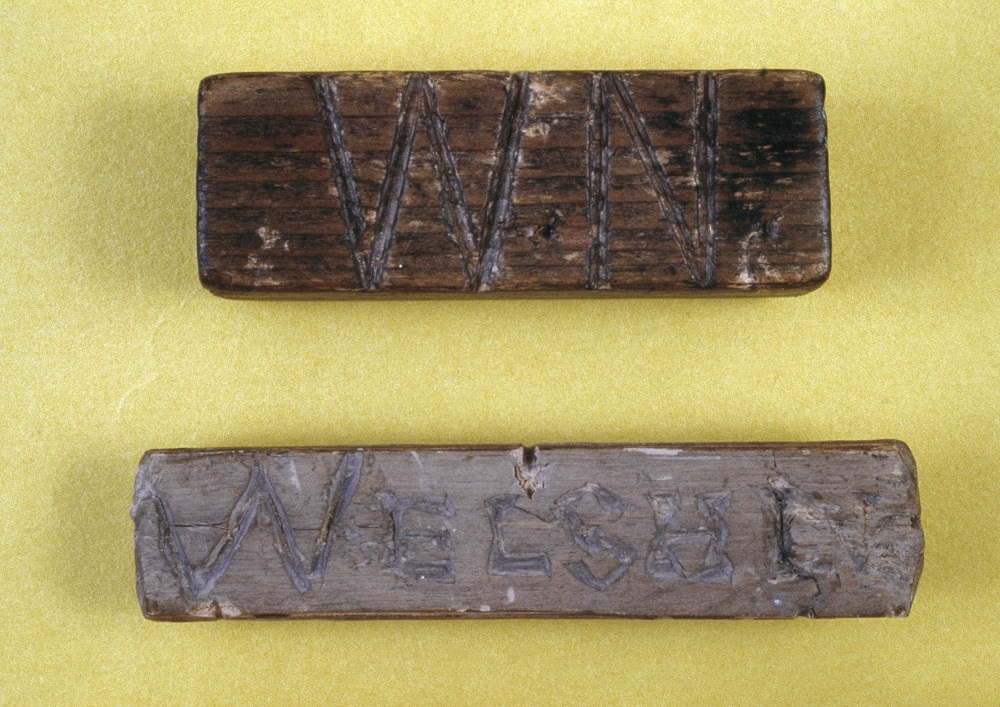Japanese singer to shoot video inspired by the Welsh Not in Cardiff

Stephen Price
A Japanese musician is preparing to shoot a music video and short film inspired by the Welsh Not and similarities with Okinawan oppression in Wales next month.
Singer-songwriter, Keiichiro Nemoto is a multi-talented artist, performing almost all artistic activities by himself, including vocals, lyrics, composition, arrangement, mixing, playing instruments, artwork and music video production.
This summer he is travelling around the world and making 10 music videos about the battle of Okinawa in 1945 with local directors to form one film for screening – and he was keen to include Wales in the project owing to shared histories of oppression.
Cardiff visit
After his current stop off in Majorca to work with Catalan artists, Keiichiro is building up excitement for the Cardiff stop-off, and made it his mission to collaborate with a team of Welsh actors alongside a director and cameraman.
With similarities to the history of the Welsh language and events such as the Blue Books or the use of the Welsh Not, the Okinawan language was prohibited after Okinawa was annexed by the Japanese government in the late nineteenth century.
Keiichiro is hoping his project can bring to light hidden histories of the Okinawan people, some of whom were killed if they spoke Okinawan dialect in front of Japanese soldiers.
Keen to promote the use of indigenous languages in everyday life, and to raise their profiles worldwide, he has already worked on incorporating Welsh language into the project which he feels privileged to share with the world.
Silent Flowers
Ahead of his journey to Wales, Keiichiro told us about his fondness for Wales: “I heard that Wales has world-famous choirs and also through my travels to the UK, and I couldn’t wait find out more.
“I know Welsh because my British friends sometimes say they can’t speak Welsh at all even though Wales is a part of the UK. Some of my friends’ family and friends are Welsh too.
Describing how the project came about, he said: When I stayed in Okinawa, I saw an American helicopter flying in the low sky making a huge noise in 2022.
“I asked many questions to the local people and started to study about the battle of Okinawa and learned about many terrible things that happened during the Second World War.
“During that time, I wrote one song called ‘Silent Flowers’ about the bombing. This song planted a seed for a bigger project to make 10 songs about around the same theme of war.
“I got an idea to collaborate with directors who are in Japan or overseas to direct films and combine the original story to make a 100 min film to be screened and to raise money for causes in Okinawa.
Passion
It was very important for him to actually visit Wales, not just work remotely on this, he told us, sharing: “I want to make things with Welsh people directly and feel their passion.
“On 6 August we will shoot the short film and music video with a Welsh director and actors. I will record the choir section of my song in Welsh too.
“When I was choosing the location, many Welsh people advised me kindly. I was so happy. And I would like to see Wales because I have heard it is such a beautiful place.”
Discussing parallels with the Okinawan language, he said: “I am not Okinawan and can’t speak Okinawan but there has been a renewed interest in Okinawan culture recently, especially music.
“Unfortunately the Okinawan languages are in a critical situation and in danger of going extinct. There is no formal teaching of Okinawan in schools so the younger generation cannot speak it.
“According to Unesco’s Atlas of the World’s Languages in Danger, 8 languages are in danger of disappearing in Japan, 7 of which are spoken in Okinawa.
“That is why I would like to make people aware of the situation. Unlike in Wales, there are no laws or formal educational policies to protect the Okinawan languages and therefore, Okinawan is critically endangered.
“I learned more about the situation from a director from Yonaguni island (the most eastern of the Okinawan islands, very near Taiwan), who joined this project. She told me about how the Yonaguni language is near extinction.
“I know some local groups try to preserve Okinawan and have some opportunity to teach Okinawan which is great, But it is on a small scale so its impact is currently small.
Welsh Not
Keiichiro shared: “I don’t remember how I came to learn about the Welsh Not. I read about it a long time before starting this project, and it left a huge impression on me.
“When I learned about the battle of Okinawa, I was reminded of the Welsh Not as I discovered that Okinawa people were forced to do similar things due to the assimilation policy by the Japanese government.
The Okinawan version, called a dialect tag, worked in the same way as the Welsh Not and was used all over Japan to stamp out regional languages and dialects.

It was a wooden tag that was hung around the students necks and when other students were heard speaking the same dialect the tag would be passed on to them. Usually the student wearing it at the end of the day or a week would be punished by the teacher.
Discussing his aims for the project, he said: “I would like people, especially the younger generation, to have more knowledge about our war history.
“People who directly or indirectly experience the horrors of the War in Japan are slowly disappearing. If we lose them as storytellers, people may stop thinking of the terribleness of the war.
“I am not from Okinawa, but Tokyo, which is on the main island and far from Okinawa.
“Many people on the main islands of Japan know very little of the history of Okinawa and how they suffered due to Tokyo’s policies.
“It is difficult for the elderly Okinawans to share their stories.
“I want to share stories of the past, so that we can understand our country’s history, how the Okinawans suffered due to Japan’s policies and war.
“I also hope to highlight the similarities between Welsh and Okinawan history and hope that Okinawa will be inspired by how the Welsh have kept their language very much alive.”
Follow the project
Keiichiro will be uploading the ten videos to his YouTube Channel. Please subscribe here: https://www.youtube.com/@Keiichiro_Nemoto
He will also be updating his Instagram regularly with background information on the project: https://www.instagram.com/keiichiro_nemoto
Support our Nation today
For the price of a cup of coffee a month you can help us create an independent, not-for-profit, national news service for the people of Wales, by the people of Wales.






About time that somebody made a film about what the English did to children in school to kill of the Welsh language
I look forward to seeing the video
Yonaguni is not the most eastern of the Okinawan islands, but the westernmost inhabited island of Japan! That being said, great initiative. We also need more awareness about the repression of Breton, Welsh’s Celtic cousin, and many other tungs by the French state ideological apparatus.
Having an astute knowledge of history, it really hurts when he described his British friends when he mentions the language, as if to be British and/or to be from Wales are different things. It isn’t!!! The term British was adopted from us by the English, and in doing so gave and forced the term Welsh on us. A term we fully accepted as we somehow believe we are getting one over our oppressors, when in reality, we are capitulating. We are Britons, always have been and God willing, always will be. What we need to fight for is not only… Read more »